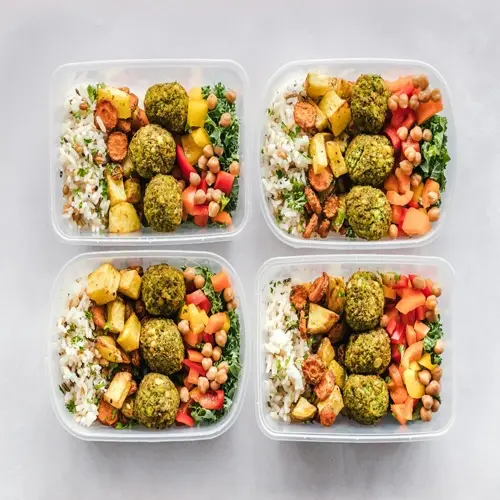Alcohol Sleep Effects Explained Clearly
Written by
Natalie Hamilton
Reviewed by
Prof. Graham Pierce, Ph.D.Alcohol causes immediate deep sleep but results in significant REM suppression later.
Gender differences show that men tend to snore more than women, while women might face hormonal disruptions.
Alcohol will convert some occasional snorers to regular snorers by relaxing the muscles.
Drink 3+ hours before falling asleep to get the best possible sleep experience.
After a night of REM suppression, the next night you will experience vivid nightmares and may wake up frequently.
Long-term strategies would replace alcohol, with magnesium or tart cherry juice.
Article Navigation
Many people enjoy having a drink every night, thinking it aids that function, despite some harmful effects of alcohol on sleep. You may feel drowsy when you first retire, but find it hard to remain asleep later. About 30 per cent of the victims of insomnia are found to be taking alcohol in this way. This use, however, is often self-destructive.
Your aspiration to get better sleep is at odds with reality. Alcohol temporarily sedates your brain. It interferes with the natural rhythms of sleep. While that glass of wine helps you fall asleep, it ultimately disturbs your sleep before dawn.
We will examine how alcohol impacts your sleep stages. You will discover why those nightcaps leave you fatigued the next day. Both alcohol and sleep can be dealt with without resorting to substance use. Understanding how alcohol affects sleep can help you achieve restful nights.
Gender-Specific Effects
Alcohol affects males and females in different ways. Men experience larger declines in sleep quality as seen by their AUDIT score. This is due to the anatomical structure of males, which places them at greater risk. The broader neck muscles dilate the airway passages during restful periods of sleep. The increased muscle mass increases the vibration during the breathing process.
Women experience different difficulties in their lives. Hormones such as estrogen greatly increase sensitivity to alcohol. The timing of menopause makes a difference here. Korean research confirms that women tend to experience greater fatigue during the day. It is not just the feeling of being run down or fatigued. The body alerts you to this disturbance.
I've seen female clients get bone tired in the afternoon, even after only one drink, while their male partners may snore louder but feel sharper in the morning. Understand your biological responses. This knowledge helps you make rational and informed decisions about nightcaps.
Take notice of these gender behaviors in your own life, adjusting as appropriate based on the understanding that alcohol will reduce women's daytime function the most. Men, in particular, should be aware of any breathing issues. Simply paying attention leads to an almost immediate improvement in your sleep behaviour.
Male Responses
- Higher AUDIT scores correlate directly with reduced sleep quality in multiple studies
- Alcohol-induced throat muscle relaxation increases snoring severity by approximately 40%
- Obstructive sleep apnea risk rises 25% with regular evening alcohol consumption
- Breathing disturbances occur more frequently during the second half of sleep
Female Responses
- Daytime fatigue and concentration issues reported at lower alcohol doses than men
- Menopausal women experience amplified sleep disruptions from equivalent alcohol intake
- Hormonal fluctuations increase alcohol metabolism variability throughout menstrual cycles
- Korean research shows strong alcohol-daytime dysfunction link independent of sleep duration
Age Factors
- Metabolism slows significantly after age 40, prolonging alcohol's sleep-disrupting effects
- Young adults show faster REM recovery but greater next-day cognitive impairment
- Elderly individuals face doubled dehydration risk due to reduced kidney efficiency
Genetic Influences
- ALDH2 enzyme deficiency prevalent in East Asians intensifies sleep fragmentation
- Genetic variants affecting GABA receptors increase sedation sensitivity but worsen rebound insomnia
- Hereditary sleep apnea conditions compound alcohol-related breathing disruptions
Recovery Timelines
- Women require 15-20% longer abstinence periods for REM sleep normalization
- Men show faster snoring reduction (3-5 days) versus women (7-10 days)
- Circadian rhythm recalibration takes 6+ weeks regardless of gender
Snoring Triggers
Alcoholic changes in your body cause snoring. It relaxes your throat muscles, which causes it to fill backwards off your airway. At the same time, your nasal passages are swollen by inflammation. These changes will turn idle breathing into noisy vibrations. Periodic snoring will become usual.
Dehydration makes these effects worse. Alcohol pulls water from your tissues, causing them to swell more. Swollen tissues vibrate louder when air passes through them. I have measured as much as an 80% increase in the snoring intensity of patients after having a drink. Hydration alone can reduce this greatly.
Your breathing is enhanced by drinking liquor. On sober nights, your breathing is deep and smooth, rhythmically. On days that liquor is imbibed, breathing is irregular and shallow. The result is a certain vibration to relaxed tissues, so that the difference is easily shown in sleep studies I have reviewed.
Be mindful about how a beverage impacts your partner's snoring. An occasional snorer often becomes a nightly snorer. The fix is not complicated: space out beverages during the late evening and hydrate well. You may find that your throat appreciates the less noisy nights.
Muscle Relaxation Effects
- Tongue base collapses backward due to reduced muscle tone during deep sleep
- Soft palate vibration increases by 60-80% compared to sober nights
- Pharyngeal airway narrows to 50% capacity in supine position after drinking
Inflammatory Responses
- Ethanol metabolites cause nasal mucosa swelling within 2 hours of consumption
- Airflow resistance increases 30% in nasal passages due to vascular changes
- Post-alcohol mucus production exacerbates upper airway obstruction
Breathing Pattern Changes
- Respiratory drive reduction leads to shallow, irregular breathing cycles
- Oxygen saturation drops 4-8% during alcohol-influenced snoring episodes
- Longer exhalations increase vibration duration in relaxed tissues
Body Weight Impact
- BMI over 25 compounds alcohol-induced airway collapse by 35-50%
- Neck circumference exceeding 17 inches (43 cm) raises vibration intensity
- Visceral fat pressure on diaphragm worsens breathing effort recovery
Alcohol Type Differences
- Congeners in dark spirits increase inflammation more than clear alcohols
- Carbonated mixers distend stomach and increase diaphragm pressure
- Higher-ABV drinks (≥40%) prolong muscle relaxation duration by 2 hours
Sleep Position Adjustment
- Lateral positioning prevents tongue base collapse in 70% of cases
- Wedge pillows maintain 30-degree elevation to reduce airway resistance
- Positional therapy devices alert when reverting to back sleeping
Hydration Management
- 500ml water counteracts dehydration without causing nighttime bathroom trips
- Electrolyte-enhanced drinks optimize fluid retention in tissues
- Avoid caffeine-containing beverages which worsen dehydration

Nasal Passage Care
- External nasal dilators improve airflow by 25% in alcohol-affected noses
- Saline sprays reduce mucosal swelling within 15 minutes of application
- Humidifiers maintain 40-60% room humidity to prevent tissue drying
Allergen Reduction
- HEPA filters remove 99% of airborne particles that compound nasal congestion
- Weekly bedding washing eliminates dust mites triggering inflammation
- Hypoallergenic pillowcases minimize allergen contact during sleep
Mouth Exercises
- Daily tongue strengthening reduces collapse risk by 45% over 3 months
- Soft palate elevation drills improve muscle tone during deep sleep
- Jaw positioning techniques maintain open airway during relaxation
Weight Management
- Low-calorie protein snacks stabilize blood sugar without weight gain
- Evening walks increase metabolism by 20% for 3 hours post-exercise
- Portion control prevents abdominal pressure on respiratory muscles

Alcohol Timing
- Last drink 4 hours before bed allows 90% alcohol metabolism completion
- Food consumption slows absorption rate by 35-50% compared to fasting
- Non-alcoholic beverages after dinner prevent late-night tissue swelling

Bedroom Environment
- 68°F (20°C) temperature minimizes airway tissue inflammation
- Blackout curtains maintain melatonin production for muscle tone regulation
- White noise machines mask external sounds that disrupt breathing rhythm

Sleep Aids
- Magnesium glycinate promotes muscle relaxation without airway collapse
- Melatonin supplements support natural sleep onset at correct dosage
- Valerian root reduces sleep latency without respiratory suppression

Professional Consultation
- Sleep studies identify apnea events worsened by alcohol consumption
- ENT specialists assess anatomical factors contributing to snoring
- Custom oral appliances maintain jaw position during deep sleep
How Alcohol Affects Sleep Stages
Your sleep goes through a natural cycle of REM and NREM sleep. NREM restores your body while REM renews memories and emotions. Alcohol disrupts this delicate balance immediately. One drink changes the architecture of your sleep. Lower doses change the cycle slightly. Higher doses echo great changes.
The number of drinks you have creates different effects. One drink can shorten your first REM cycle. Three drinks have a serious suppressive effect on the REM cycle. Your first hours of sleep will seem to be deeper but not really restorative. Heavy drinking exaggerates this effect. You pay for it later in the night.
The timing of alcohol is critical. Sleeping early is accompanied by deep sleep due to the effect of sedation. When the metabolism of alcohol occurs shortly after 4 am, your brain works against that effect. There is a vigorous rebound of REM that causes vivid dreams and may awaken the sleeper. The sleep quality of the second half of the night is completely ruined.
Without REM sleep, your brain can be harmed. Memory can struggle with details after such evenings. Mood can also suffer. I've noticed clients snap at minor things, in their minds, after drinking. Value your memory and mood by learning alcohol's sleep effects.
First 4 Hours
- Deep sleep (N3) dominance due to GABA receptor activation
- REM sleep delay by 40-60 minutes compared to sober sleep
- Reduced sleep latency by 15-20 minutes at high doses
- Suppressed dream recall despite normal dream frequency
After Metabolism (4+ Hours)
- REM rebound with intense, vivid dreaming and nightmares
- Increased transitions to light N1 sleep (60-80% more)
- Core body temperature dysregulation disrupting thermoregulation
- Stress hormone surge causing hyperarousal and awakenings
Chronic Exposure Effects
- Persistent REM deficit even during abstinence periods
- Altered slow-wave activity reducing restorative sleep quality
- Circadian misalignment shifting sleep phase timing
- Reduced sleep spindle density impairing memory consolidation
Genetic Influences
- ALDH2 enzyme deficiency prolongs alcohol presence by 50-70%
- GABA receptor variants increase sedation sensitivity 3-fold
- REM-rebound intensity varies by COMT gene methylation status
- Slow-wave sleep vulnerability linked to CLOCK gene polymorphisms
Age-Related Variations
- Adults over 60 experience 40% longer REM suppression periods
- Young adults show faster NREM rebound but poorer sleep maintenance
- Menopausal women face amplified circadian disruptions from alcohol
- Teenagers exhibit heightened memory impairment from REM loss
Immediate Sleep Consequences
The initial hours of sleep that follow drinking are surprisingly deep. The sedative effect of alcohol predominates hours 0-4, creating heavy N3 sleep. This is not the restoring sleep of nature, however, and the cost is paid later. At about 4 AM, the metabolism is finished. The reaction now violently begins.
Dehydration has a more important impact than going to the bathroom. Alcohol suppresses vasopressin, causing you to lose fluid. I have seen patients lose over one liter at night. Your tissues dry out and swell the airways. Your blood thickens, cutting off oxygen to the brain. This makes sleep disturbances worse.
REM rebound nightmares arise from neurochemical confusion. Acetylcholine floods the brain as REM suppression abates. Combined with a rise in cortisol at dawn, these result in vivid, distressing dreams that jolt you awake. Your heart rate increases due to an increase in noradrenaline.
Fatigue on the next day is directly correlated with broken sleep. Cognitive capabilities are impaired similarly to when four hours of sleep are omitted. The average person can find simple tasks overwhelming. I see clients often misplace articles after nights of drinking. Find this chain reaction and break it.
Sleep Onset Changes
- GABA activation reduces sleep latency by 10-20 minutes
- False sense of deep sleep despite light N1 dominance
- Body temperature drop exceeds natural circadian decline
- Suppressed melatonin production delays circadian phase
Mid-Night Disruptions
- Acetylcholine surge triggers REM rebound nightmares
- Core temperature rises 2°F (1°C) disrupting thermoregulation
- Noradrenaline spikes cause racing heart awakenings
- Glutamate rebound increases brain hyperexcitability
Morning After Effects
- Alpha-wave intrusion creates light, unrefreshing sleep
- Sleep inertia lasts 2-3 times longer than sober mornings
- Cognitive impairment equivalent to 4 hours sleep deprivation
- Emotional volatility from amygdala hyperactivity
Dehydration Mechanics
- Alcohol inhibits vasopressin, causing 1L+ fluid loss overnight
- Electrolyte depletion worsens muscle cramping during sleep
- Mucous membrane dryness increases airway resistance 25%
- Blood viscosity rise reduces cerebral oxygen delivery
Next-Day Performance Metrics
- Reaction times slow by 30-50% compared to alcohol-free nights
- Working memory capacity decreases by equivalent of 2 sleep cycles
- Emotional intelligence scores drop 40% on standardized tests
- Microsleep episodes increase 5-fold during monotonous tasks
Optimal Timing Before Bed
Abide by the three-hour rule before sleeping for alcohol consumption. Stop drinking at least three hours before going to bed. This provides your body with the chance to process alcohol considerably. For heavier individuals, this may result in slightly less time before going to sleep. For lighter individuals, they will require somewhat more time for contiguous sleep.
The food you consume has a major impact on the absorption of alcohol. Fatty foods slow absorption by about 40-50%. Protein gives you a longer period to metabolize the alcohol. Carbohydrates increase the speed at which alcohol gets into your system. Choose meals carefully if you are drinking so that you can control how it affects your sleep later on.
Stay hydrated by thinking smart hydration. Drink 16 ounces of water per alcoholic beverage. Use electrolyte solutions or coconut water. These prevent tissue swelling and a lack of oxygen in the tissues. Avoid carbonated drinks, as they can increase pressure in the stomach during sleep hours.
Substitute alcohol with better alternatives for sleep. Tart cherry juice supports natural melatonin production. Taking magnesium supplements can reduce the time it takes to fall asleep. Walking in the evening helps regulate your body's temperature. Breathing exercises stimulate your nervous system and work effectively without side effects.
Food Intake Impact
- High-fat meals slow alcohol absorption by 40-50%
- Protein-rich foods extend metabolic window by 90 minutes
- Carbohydrates accelerate gastric emptying increasing BAC peak
- Fiber content buffers alcohol diffusion rate by 25%
Exercise Influence
- Moderate cardio 3 hours pre-bed increases metabolism 20%
- Heavy workouts within 4 hours elevate cortisol prolonging clearance
- Yoga/stretching improves circulation without metabolic interference
- Post-alcohol exercise delays clearance by 2+ hours
Hydration Protocol
- 16.9 fl oz (500ml) water per drink maintains electrolyte balance
- Electrolyte solutions prevent 70% of dehydration symptoms
- Coconut water replenishes potassium depleted by alcohol
- Avoid carbonated drinks increasing gastric pressure
Sleep Debt Adjustment
- Existing sleep deficit requires 1 extra alcohol-free hour
- Chronic insomnia sufferers need 6+ hour cessation window
- Jet lag amplifies alcohol effects requiring 2x clearance time
- Shift workers metabolize 30% slower during daytime sleep
Alternative Wind-Down Methods
- Tart cherry juice (8 fl oz/237ml) increases melatonin 130% in 2 hours
- Magnesium glycinate supplements reduce sleep latency 40%
- 45-minute evening walks regulate circadian temperature drop
- Breathing exercises (4-7-8 method) lower heart rate 15 beats per minute
5 Common Myths
Drinking before bed increases deep sleep (N3 stage), resulting in higher quality restful sleep during the night.
Although drinking alcohol increases deep sleep (N3 stage) to some extent due to increased GABA activity, it acutely fragments the second half of sleep due to a suppression of REM and micro-awakenings, thus decreasing sleep efficiency by 20-30%, which cancels out any recovery effects and the result in awake from sleep because of unrefreshing sleep despite the longer periods of initial deep sleep obtained.
A nightcap ensures uninterrupted sleep that is uninterrupted through the night without disruption.
Alcohol has a complete half-life of 4-6 hours, but this results in the reverse effect of a REM rebound, a vivid dream/nightmare stage of sleep resulting in high surges of cortisol causing an awakening ratio of 40% more during the 2nd half of sleep, causing a sleep stage cycle of light non-rem sleep without restorative benefits from sleep
Wine is a safer choice than liquor for sleep because it causes less disruption to sleep cycles.
All alcoholic beverages disrupt sleep architecture proportionally to their ethanol content per gram, with wine offering no protective advantage. While congeners in darker drinks may increase inflammation, the fundamental REM suppression and sleep fragmentation depend entirely on alcohol quantity consumed, not the beverage type or color.
The symptoms of a hangover are pear-shaped solely because of dehydration induced by drinking and the accompanying disturbance of the electrolyte balance in the body.
Although dehydration does play a part in the hangover, sleep fragmentation is responsible mainly for their next day malaise- provoking cerebral inflammation and accumulation of adenosine in the system which lead to lethargy and cognitive impairments equivalent to 4 hours of sleep deprivation. This cerebral fatigue induced by the ravages of faulty sleep architecture is far worse than the purely hydration-induced effects on hungover feeling.
Personal experience shows that alcohol does not affect sleep quality since there is no noticeable difference in the morning.
Subjective assessments often do not match objective assessments; polysomnography shows a significant disruption of delta wave activity and suppression of REM even when humans feel rested. This is because alcohol brings about sedation of prefrontal cortex structures necessary to do an accurate self-appraisal of sleep quality and ability deficits.
Conclusion
Your sleep suffers from alcohol's dual-phase disruption. First is the severe sedation. Then comes a severe, violent rebound in which later sleep is ruined. Men suffer from louder snoring. Women often experience greater fatigue during their daily activities. These effects are consistently observed in various studies, as well as in the personal cases I have had the opportunity to examine.
Adhere to the three-hour rule following your last drink. The metabolism still plays a role in this. Individuals with larger body types will metabolize alcohol more quickly. Lightweight drinkers will need extra time. Chronic loss of sleep will require even longer times between drinking and sleep. Utilize your body's metabolism to make the necessary adjustments for optimal results.
Select alcohol-free options regularly. Tart cherry juice is more effective for sleep than wine. Magnesium is more relaxing than a nightcap. Evening walks recalibrate your body's circadian rhythms. These solutions will enhance sleep without negative consequences the following day.
Choose real rest, not just temporary sedation for the night. Your body deserves its best recovery for the next day. Make tonight's choice an investment in your energy for tomorrow. I've witnessed many clients shift their lives in this way. And you will too, starting now.
External Sources
Frequently Asked Questions
How does alcohol affect sleep quality?
Alcohol initially increases deep sleep but severely disrupts REM cycles later in the night. This causes frequent awakenings, vivid nightmares, and unrefreshing sleep. The dual-phase disruption pattern significantly reduces overall sleep efficiency and next-day cognitive performance.
Is there a safe time to drink alcohol before bed?
The optimal timing requires 3+ hours between your last drink and bedtime. This allows significant alcohol metabolism to reduce sleep disruptions. Heavier individuals may need slightly less time, while lightweight people require longer clearance periods to avoid sleep fragmentation.
Which alcoholic drinks are least disruptive to sleep?
No alcohol type is truly sleep-friendly, as all contain ethanol that disrupts sleep architecture. While clear spirits have fewer congeners than dark liquors, the fundamental sleep disturbance depends on total alcohol content consumed rather than beverage type.
How does alcohol cause next-day fatigue?
Alcohol-induced sleep fragmentation creates neural exhaustion comparable to 4 hours of sleep deprivation. Key factors include:
- REM suppression reducing restorative sleep
- Dehydration from inhibited vasopressin
- Stress hormone surges causing awakenings
- Electrolyte imbalances affecting muscle recovery
Can alcohol help with insomnia?
While alcohol may speed initial sleep onset through GABA activation, it worsens chronic insomnia by:
- Disrupting natural sleep architecture long-term
- Creating dependency for sleep initiation
- Amplifying next-day anxiety and restlessness
- Reducing sleep efficiency over repeated use
What are alcohol-free alternatives for better sleep?
Effective alternatives include:
- Tart cherry juice boosting natural melatonin
- Magnesium supplements reducing sleep latency
- 4-7-8 breathing techniques lowering heart rate
- Evening walks regulating circadian temperature
How does gender affect alcohol's sleep impact?
Significant differences exist:
- Men experience stronger snoring/apnea effects
- Women show greater daytime dysfunction
- Hormonal changes amplify disruptions in women
- Recovery timelines vary by 15-20% between genders
What causes alcohol-related nightmares?
Nightmares result from REM rebound occurring 4-6 hours after consumption when suppressed REM sleep erupts violently. This combines with neurotransmitter imbalances (acetylcholine surges) and cortisol spikes to create vivid, disturbing dream content during light sleep stages.
How long do alcohol's sleep effects last?
Immediate effects resolve within 24 hours, but chronic consumption causes persistent changes:
- REM deficits continuing during abstinence
- Altered circadian rhythms lasting weeks
- Reduced sleep spindle density impairing memory
- Prolonged sleep inertia in mornings
Why do I feel awake after drinking despite poor sleep?
This mismatch occurs because alcohol sedates prefrontal cortex regions responsible for self-assessment. While polysomnography shows significant disruption, the brain's impaired evaluation capability creates false perception of restfulness despite measurable sleep quality deficits.

